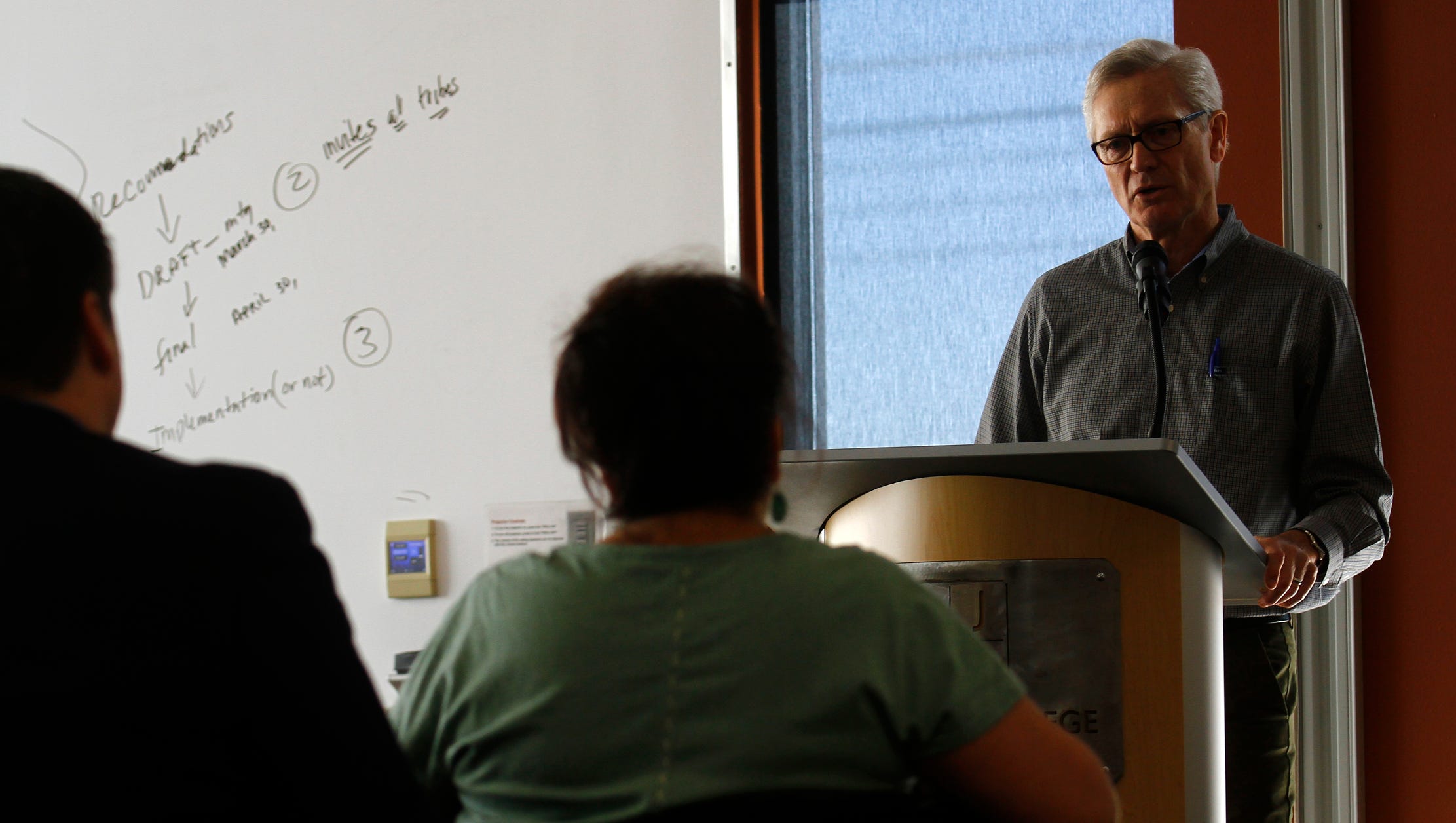New oil and gas technologies featured at forum

FARMINGTON – Tribal energy officials and members of the public who attended a forum Wednesday at San Juan College were exposed to new and emerging technologies designed to help the oil and gas industry reduce pollution and comply with federal rules while delivering savings.
With crude oil and gas prices remaining low, and many energy companies struggling, tribal and college officials came together with both Native American and nontribal oil and gas business owners to hear about the new technologies. The list included wellhead equipment that captures "fugitive" methane, centralized water and power facilities, flare reduction equipment, gas capture equipment and an affordable infrared spectral imaging camera that can identify hydrocarbons.
The two-day forum, called the Inter-Tribal Energy Gathering, drew officials from the Ute, Jicarilla Apache and Navajo tribes, and was held at the college's School of Energy.
Conference facilitator Roger Fragua of Jemez Pueblo introduced several new companies with products geared toward the oil and gas industry with the aim of delivering efficiency and savings with cleaner energy production. Fragua told the crowd that the point was to introduce and start a discussion about new and emerging technologies, as well as emerging business opportunities.

"We're at such a critical intersection, it really is a good opportunity to look at this from a compliance or environmental but also a business perspective," he said.
All the business representatives who delivered a presentation Wednesday emphasized the bottom line.
Al Duerr of General Magnetic International Inc. journeyed from Alberta, Canada, to show his company's low-speed, high-torque permanent magnet motors that he said will deliver more power with less of a footprint. They cost more than the average motor, but Duerr emphasized the value of the investment and the savings through the life of the motor, which operators can use now. Duerr said Canada is facing a national carbon tax, which has pushed his company to consider a business model in which the firm gives the technology it makes to its customers for free.
"In Canada, we have more regulations and more guidelines than down here," he said. "It's really just a matter of time before those things happen here ... If it's done right, it can be to your advantage, as well."
GMI's business model is to give the product away and monetize carbon credits the operators hand to GMI in return. If a company buys the equipment at full price, it can keep the resulting carbon credits for itself.
The Canadian company is currently retrofitting 1,600 wells for two operators, a value of about $16 million, Duerr said.
"We'll pay back that $16 million and make another $26 million (in carbon credits)," he said. "So who benefits on that? The industry gets the equipment for nothing, the government and society meet their greenhouse gas targets, it generates jobs in these smaller communities in Alberta and we can make a lot of money on top of it. By doing the right thing, you can also make money, and everybody in that process can benefit."

Gary Heath of Farmington's Engineered Concepts LLC talked about his company's emissions-free hydrators and other oil and gas equipment that can make a difference in operators' pocketbooks, as well as meet federal rules.
Engineered Concepts investor Gary Schildt came from Wisconsin to talk about the benefits of the equipment. During a break, Schildt said the industry is often a hard sell when it comes to pricier environmentally friendly equipment, even when it delivers increased profit.
He compared the challenge of helping the oil and gas industry reduce oil and gas pollution to the problems facing housing construction in the 1970s when many homes were built without substantial insulation becaquse the natural gas used to heat the homes was cheap. Until building codes regulated the home construction industry, houses continued to be built with thin walls that wasted natural gas.
"You cannot waste your product. You have to use the latest technology to capture everything," he said. "Our equipment pays for itself, so what are you really paying? We should have the attitude of not wasting resources. That's just human best practice. I'm in manufacturing. If I waste, China will take my business. You look at the amount of innovation out there, and the resistance to it is just unreal."
With 20 percent of all U.S. oil and gas activity taking place on tribal lands, Fragua said tribal energy leaders are poised to make strides in environmental stewardship and technological upgrades to the oil and gas industry.
And with changing regulations over the industry looming, the tribes are now looking at "the new energy economy," Fragua said, which relies on a cleaner set of technology. Fragua said tribes can take the lead with new technologies in the energy sector by achieving standards that exceed those required by federal or state governments.
But gaining buy-in for such an effort will take steady amounts of discussion, interest and education, he said.
Fragua cited the famous 1971 "Keep America Beautiful" commercial that featured Iron Eyes Cody paddling his canoe down a polluted river and standing along a smoggy, traffic-clogged street as someone throws garbage on his moccasins. The most powerful moment in the PSA comes at the end when a close-up of Cody's face reveals a tear rolling down his cheek.
"That commercial with the 'crying Indian' predates the EPA," Fragua said. "And for some reason, American Indian tribes and communities and people have been representative as the first environmentalists. And we have challenges and struggles like any other American, but I think we've always tried to reach for the highest level to the fullest extent possible, but we haven't always had access to the latest technologies and all the education. That's been part of our struggle."
James Fenton is the business editor of The Daily Times. He can be reached at 505-564-4621.